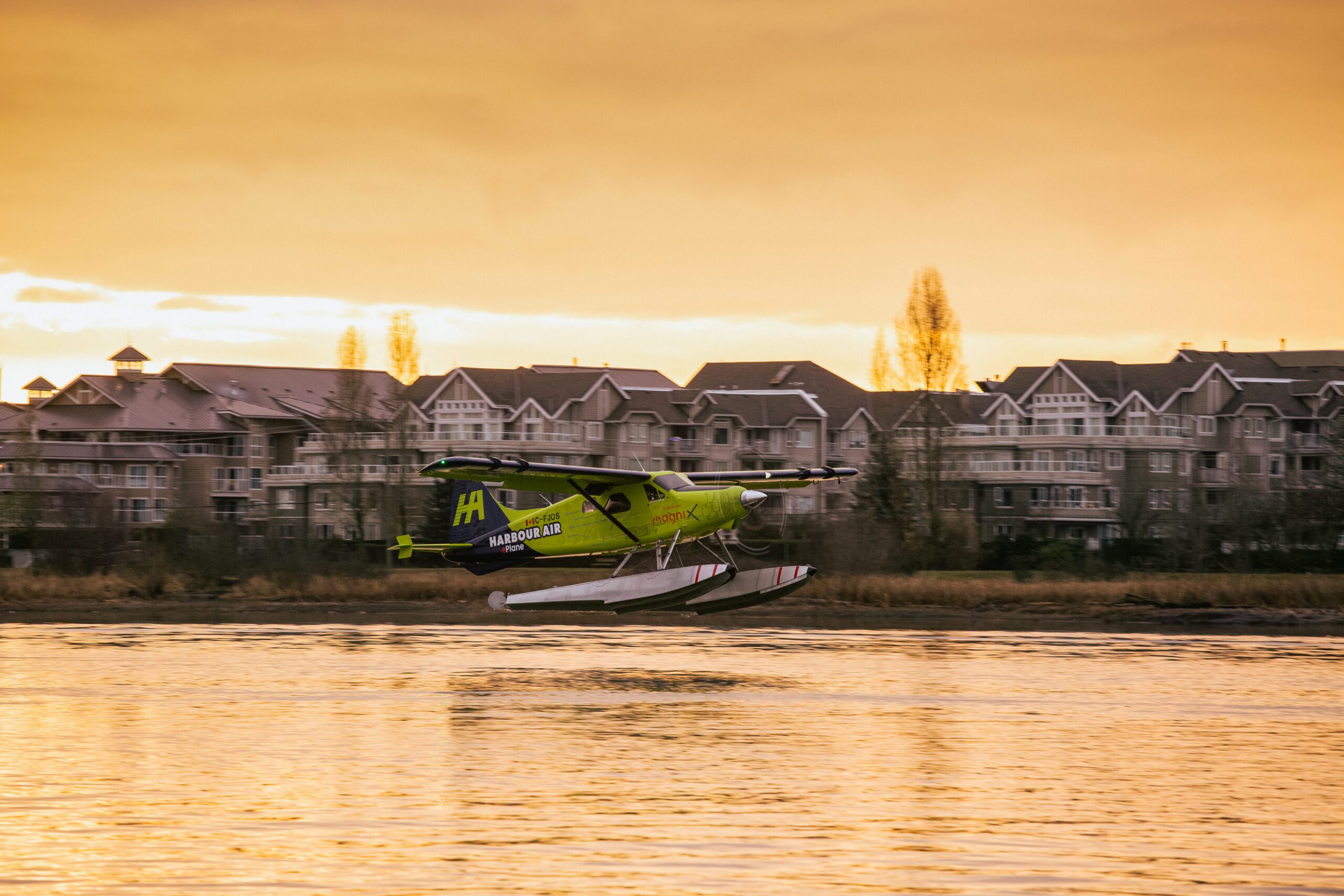The climate crisis is one of the biggest challenges facing the world today—and a great opportunity for creative problem solving. In celebration of Earth Day, we’ve rounded up some of the technology sector’s most climate-friendly innovations.
All-electric plane
In December 2019, the world’s first fully electric aircraft took flight from Vancouver, flying for 15 minutes. Designed by engineering firm magniX, the plane seats six and features a powerful engine designed for flights up to 161 kilometres (100 miles).
Aviation accounts for about two percent of global greenhouse emissions, according to the Air Transport Action Group, a not-for-profit industry association. With electric propulsion, planes put out zero emissions. Costs for operating an all-electric plane are between 40 and 80 percent cheaper per hour, which could mean lower-priced tickets and newly available routes from lesser-used airports.
“We believe that 15 years from now, all flights less than a thousand miles in range will be completely electric,” said magniX CEO Roei Ganzarski. “We envision future generations will naturally board an all-electric aircraft and not understand how anyone ever flew these ranges… with anything other than electric aircraft.” Ganzarski said magniX plans to start with smaller commercial aircraft, expanding as battery and fuel cell technology improves.
Lab-grown meat
Studies show that eating meat has a big impact on a person’s carbon footprint, both for the amount of land required to raise an animal and for the meat’s processing and shipping. For those not interested in going vegetarian, there’s an emerging option: lab-grown meat.

Lab-grown or “clean” meat is made by collecting a muscle sample from an animal and then replicating that tissue. Start-up company Mosa Meat reports that a single tissue sample from a cow can yield enough muscle to create 80,000 quarter-pound burgers.
Lab-grown meat is significantly more expensive than traditional meat, but prices are dropping. There is a mental hurdle to get over: the fact that the meat in your mouth was made in a test tube. But researchers found that embracing this technology means less land clear-cut to raise livestock, and less methane released from gassy cattle.
Plastic-eating enzyme
In a Japanese waste facility in 2016, a team of researchers discovered a bacterium that had naturally evolved to eat plastic. During their exploratory testing, the team accidentally created a molecule even better at breaking down the polyethylene terephthalate (PET) used to make plastic. This new enzyme breaks down plastic in a matter of days, rather than years.
More on Broadview: Brynn Kilpatrick, 10, brings climate awareness to Ontario town
Our current recycling methods degrade the PET, and the materials get worn down over time. The enzyme, named PETase, breaks the plastic down to its original elements, which can be used to make recycled plastic like new. Scientists hope to further improve the enzyme so that it can be used on a larger scale to close the loop on recycling, reducing the planet’s overall amount of plastic and avoiding the need for further extraction of oil and other resources.
Drone tree planting
Dendra Systems, a U.K.-based company, is using drones to spray tree seeds through deforested areas—and they’re aiming to plant 500 billion trees by 2060.
The system works by using satellite and drone-collected data to determine the best location to plant each tree. The planting drones then use pressurized air to fire 120 seed pods per minute into the ground, each containing a germinated seed and nutrients.
The company tested their technology in Myanmar in 2018, seeding remote areas of the country where trees were not growing. In less than a year, there were thousands of 20-inch mangrove saplings, proving the system can work in practice.
Deforestation is a major climate concern—the World Wildlife Fund estimates that around 17 percent of the Amazon’s forests—which contain half of the planet’s remaining tropical forests and 90-140 billion metric tons of carbon—have been lost in the last 50 years. Dendra estimates their technology would allow governments to reforest areas 150 times faster than planting by hand, at one-tenth of the price.
Broadview is an award-winning progressive Christian magazine, featuring stories about spirituality, justice and ethical living. For more of our content, subscribe to the magazine today.















